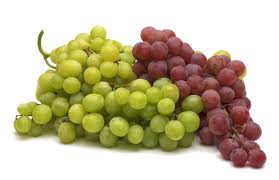 The grape is one of the oldest foods in the history of the world, responsible for the production of wine. Hunters and gatherers were most likely the first people to enjoy this delicious fruit, with the first known vines growing near the Black Sea. Humans began to cultivate grapes more than 6,000 years ago, and have certainly mastered the production of this wonderful fruit.
The grape is one of the oldest foods in the history of the world, responsible for the production of wine. Hunters and gatherers were most likely the first people to enjoy this delicious fruit, with the first known vines growing near the Black Sea. Humans began to cultivate grapes more than 6,000 years ago, and have certainly mastered the production of this wonderful fruit.
The romans were the first civilization to refine the production of winemaking. Here, the art of pruning, fermenting and storage were for the most part mastered. As knowledge of biology and plant grafting, grew over time, so did the varieties of grapes and their uses. While most grapes purchased in a store lack seeds, these are modern hybrids.
Key Nutrients
Grapes contain a high amount of thiamin, vitamin B6, riboflavin, vitamin C and potassium. They have a high amount of dietary fiber, and contain a low amount of saturated and unsaturated fats.
Health Benefits
Vitamin C – Regular consumption of foods rich in vitamin C helps the body develop resistance against infections and scavenges harmful, pro-inflammatory free radicals. Vitamin C also helps to prevent respiratory problems such as asthma and lung cancer. Vitamin C has been shown to lower blood pressure, and therefore lessen the probability of hypertension.
Vitamin B1 – Thiamine is an important vitamin since it breaks down sugars in the body. Thiamine also helps to support nerve and heart health.
Vitamin B6 – Vitamin B6 helps to keep your immune system in good working order. It aids in the breakdown of fats, carbohydrates and amino acids while helping to maintain the health of lymph nodes. Additionally, vitamin B6 helps to regulate blood glucose levels.
Vitamin B9 – Folate is an important vitamin for liver function.
Vitamin B12 – Vitamin B12, or folic acid, helps to preserve neurological function and DNA synthesis. It also plays a key role in the health of red blood cells. The nervous system relies on vitamin B12 for proper function as well.
Potassium – Potassium is an essential mineral which aids in fluid regulation, protein synthesis and cardiovascular health. High levels of potassium are associated with reduced risk for stroke, improved blood pressure control as well as bone health.
Season
Grapes are most abundant in the fall, when they mature on small vines. With growths in both the Northern and Southern Hemisphere, you can find grapes nearly year round in most supermarkets.
Nutrition Information
Per 1 Cup (92 grams):
Calories (cKal): 62
Protein (grams): .58
Total Fat (grams): .32
Carbohydrates (grams): 15.78
Fiber (grams): .8
Buying and Storing
When buying grapes, make sure the vine is free of rotten or broken fruit. When storing at home, refrigerate in a sealed bag for up to one week.
Best Way to Add to Diet
Grapes go well with breakfast cereal, porridge or as a snack. While wine is the most popular way to consume grapes, try and use this delicious fruit in a dessert or two.
Grape Recipe

 Not Sure What Healthy Foods To Eat?
Not Sure What Healthy Foods To Eat? This week we take a look at one of my favorite healthy foods...the mighty Avocado.
This week we take a look at one of my favorite healthy foods...the mighty Avocado.
No comments yet.